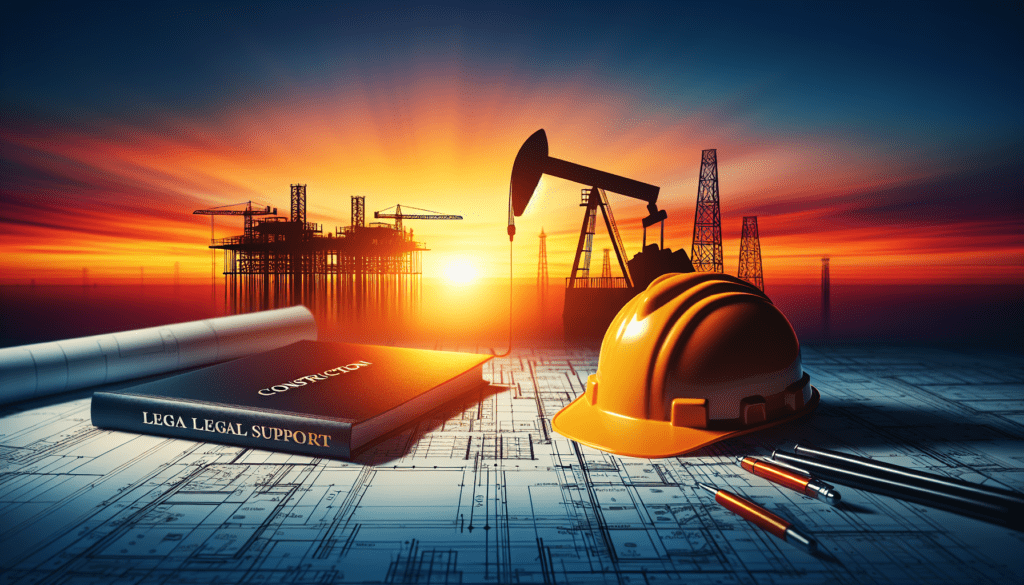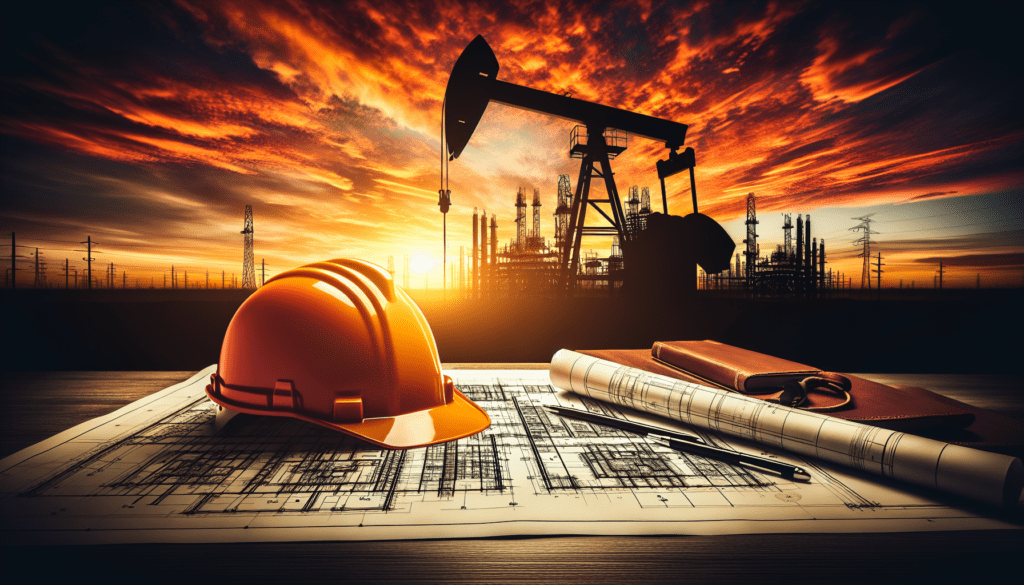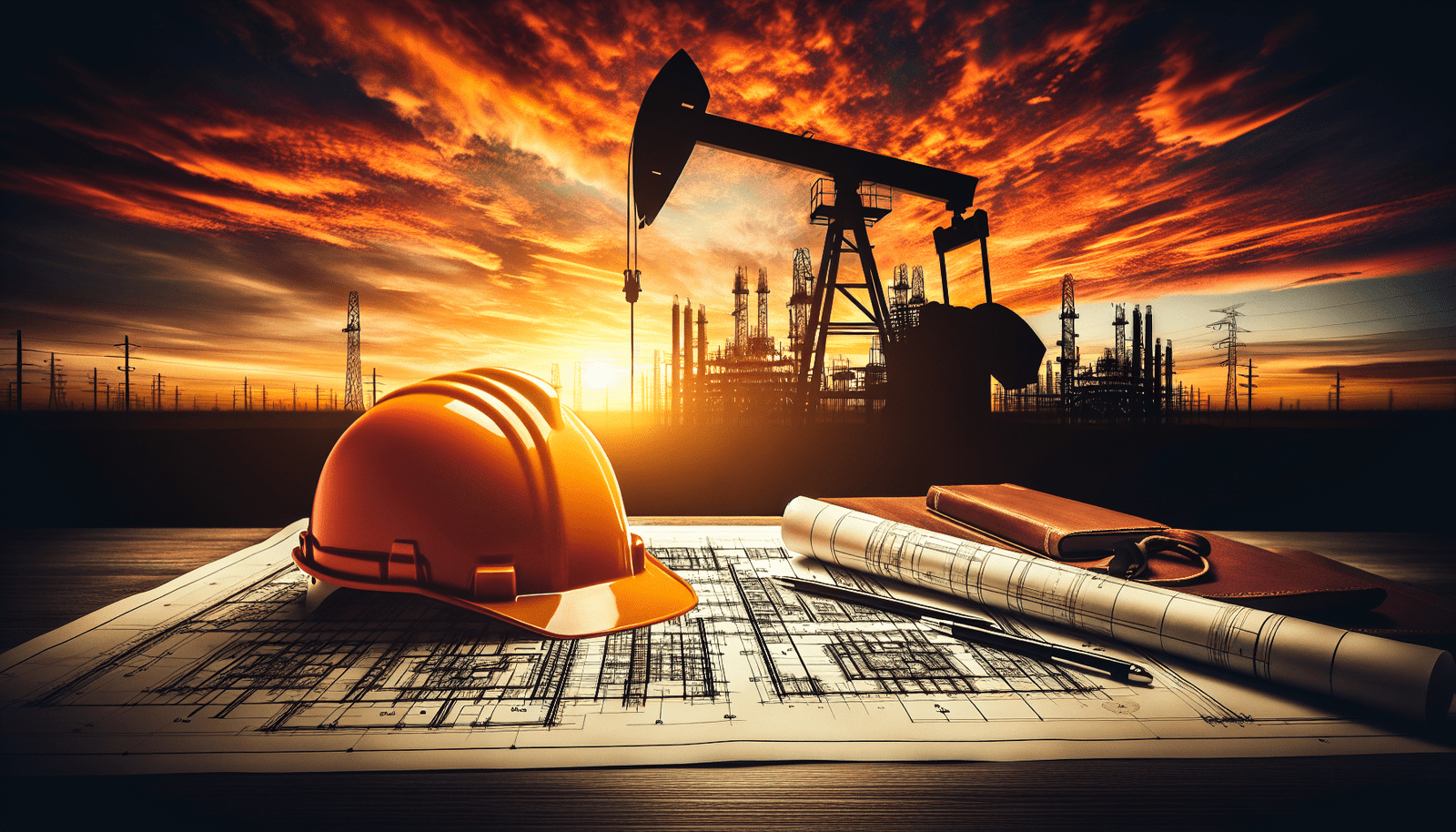Have you ever considered what you would do if you found yourself injured in a construction or oilfield accident? It’s a serious question, especially if you’re working in environments like Boulder where such work is prominent. These jobs are vital but come with inherent risks and when accidents happen, the aftermath can be overwhelming—legally, financially, and emotionally. This is where having the right legal advocate becomes essential. So, let’s delve into the world of Boulder construction and oilfield accident law to understand why it can be crucial to have a specialized lawyer at your side.
Understanding the Risks in Construction and Oilfields
The Nature of Construction and Oilfield Work
Construction and oilfield sectors, while diverse in operation, share common characteristics. Both involve intense physical labor, operating heavy machinery, and often working in dangerous or unpredictable environments. You, who toil fervently on these sites, know firsthand the array of potential hazards you face daily.
In construction, from towering structures under construction to the careful dismantling of old infrastructures, each task carries its own set of perilous challenges. On the other hand, oilfield work involves not just operational rigors but also environmental and mechanical dangers that come with handling volatile substances.
Statistics Speak Volumes
Understanding the statistics surrounding these sectors can put things into perspective. According to data from the Occupational Safety and Health Administration (OSHA), construction accounts for a significant portion of workplace fatalities in the United States. Falls, being struck by objects, electrocution, and being caught between equipment are leading causes.
Similarly, the oil and gas extraction industry reports a higher risk of fatal injuries compared to other industries, per the Bureau of Labor Statistics. Explosions, fires, and machinery accidents are common culprits here. These figures illustrate the critical need for safety measures and highlight the unfortunate reality of accidents despite best efforts.
Why Legal Representation Matters
Immediate Legal Knowledge and Support
In the aftermath of an accident, you are often dealing with physical pain and emotional stress while navigating the complex legal system. An experienced Boulder construction and oilfield accident lawyer offers immediate support and guidance. They know the law, the local court systems, and are seasoned in negotiating with insurance companies.
Advocacy for Fair Compensation
One of your primary concerns may be receiving fair compensation for the injuries and losses you’ve sustained. This compensation covers not only your medical bills and lost wages but also addresses pain and suffering. A knowledgeable lawyer fights to ensure you receive the maximum compensation possible.
A key aspect of their role is advising on when to settle and when to pursue a case in court. It’s a decision fraught with nuances, and an experienced lawyer will provide the insight needed to make an informed choice that caters to your best interests.
Navigating Complex Legal Procedures
Legal proceedings can be intricate, often involving numerous forms, deadlines, and legal jargon that may be unfamiliar to you. A specialized lawyer streamlines this process. They ensure that all paperwork is accurately completed and submitted, adhere to critical timelines, and work tirelessly to prep your case for success whether it settles or goes to trial.

Distinctive Aspects of Construction and Oilfield Accidents
Common Causes of Accidents
Understanding the common causes of accidents in these fields is pivotal for prevention and legal preparedness. In construction:
- Falls from heights, such as scaffolding or ladders.
- Struck by Objects like tools or debris.
- Electrocutions from contact with power lines or unprotected electrical components.
In oilfields:
- Equipment Failures due to wear, improper handling, or inadequate maintenance.
- Chemical Exposures from leaks or spills.
- Explosions and Fires from gases or volatile chemicals.
This knowledge can be vital not just for safety training but also when understanding your accident’s nature in the legal context.
Impact of OSHA Regulations
OSHA regulations are designed to minimize workplace hazards, and their role is critical in any accident case. If a company is found to be in violation of these regulations, it can significantly impact your claim. Your lawyer will examine these aspects to build a case that highlights negligence and potentially exacerbates liability on the part of your employer or other parties.
The Importance of Medical Documentation
Accurate and thorough medical documentation is pivotal in substantiating injury claims. Post-accident, seek immediate medical evaluation, and diligently follow through with all prescribed treatments. Not only is this essential for your health, but it forms a robust foundation for your legal case. Your lawyer will use medical records to establish the severity of your injuries and correlate them to the incident.
Selecting the Right Lawyer
Specialized Experience
When choosing a lawyer, prioritize specialization in construction and oilfield accident law. Their expertise in this niche equips them with the necessary tools to tackle the complexities of your case effectively.
Track Record of Success
Evaluate potential lawyers on their past success rates. Have they been successful in securing substantial compensations for their clients? This track record helps infer their capability to advocate compellingly on your behalf.
| Criteria | Considerations |
|---|---|
| Specialized Experience | Focused expertise in construction and oilfield accident law. |
| Success Rate | A proven history of securing favorable settlements and verdicts. |
| Client Testimonials | Satisfied clients indicate reliability and effective advocacy. |
Client Testimonials and Reviews
Testimonials from former clients provide insight into a lawyer’s professionalism and client service. Read reviews and even reach out to past clients if possible. Personal endorsements can significantly inform your decision.
Comfort and Trust
Finally, ensure you are comfortable with your lawyer. Trust is paramount. You should feel at ease speaking candidly and trust that your lawyer has your best interests at heart.

What Your Lawyer Will Do for You
Case Evaluation and Strategy
Initially, your lawyer will conduct a thorough evaluation of your case. This involves gathering all pertinent information, assessing the strength of evidence, and formulating a robust legal strategy tailored to your case specifics.
Negotiations with Insurance Companies
Insurance companies often aim to minimize payouts. Your lawyer acts as a formidable negotiator, challenging lowball offers and demanding the compensation you deserve. Their experience and skill are critical to navigating these discussions, ensuring your rights and interests are upheld.
Trial Preparation and Representation
If a settlement is not feasible, your lawyer will prepare to take your case to trial. This involves a detailed and rigorous process of gathering evidence, preparing witnesses, and constructing your narrative compellingly. Their representation in court will aim to effectively relay the impact of the accident on your life, thus securing a favorable outcome.
The Role of Witnesses and Evidence
Eyewitness Accounts
Witnesses can be a cornerstone of your case. Whether they’re coworkers, emergency responders, or bystanders, their accounts can corroborate your version of events and provide clarity on negligence or safety lapses.
Photographic and Video Evidence
In today’s digital age, photographic and video evidence can be extremely potent. Such evidence can vividly capture unsafe conditions or the accident’s immediate aftermath, supporting your claim and adding valuable visual testimony.
Expert Testimonies
In certain cases, expert testimonies may be necessary. Specialists can evaluate and testify on machinery malfunction, structural safety, or injury specifics, lending professional credibility to your claims. Your lawyer will identify and collaborate with these experts to fortify your case.
Steps You Should Take After an Accident
Immediate Steps
- Seek Medical Attention: Even if injuries seem minor, prioritize medical evaluation.
- Report the Incident: Inform your employer and ensure an official report is filed.
- Document the Scene: If safe and possible, capture photographs or videos of the scene.
- Collect Information: Gather contact details of any witnesses.
Ongoing Actions
- Keep a Record: Maintain all medical records, receipts, and correspondence related to the accident.
- Follow Medical Protocols: Adhere to all medical advice and attend follow-up appointments.
- Consult Your Lawyer: Regularly update your lawyer and provide any new information related to your case.
Conclusion
Navigating the aftermath of a construction or oilfield accident can be daunting, but remember, you don’t have to face it alone. The right legal partner can illuminate the path forward, advocating fiercely on your behalf to secure the justice and compensation you rightly deserve. In Boulder, where these industries are part of the community fabric, it’s invaluable to have legal allies well-versed in local laws and industry challenges. By understanding your rights and knowing how to act in these situations, you empower yourself to face the future with resilience and hope.
